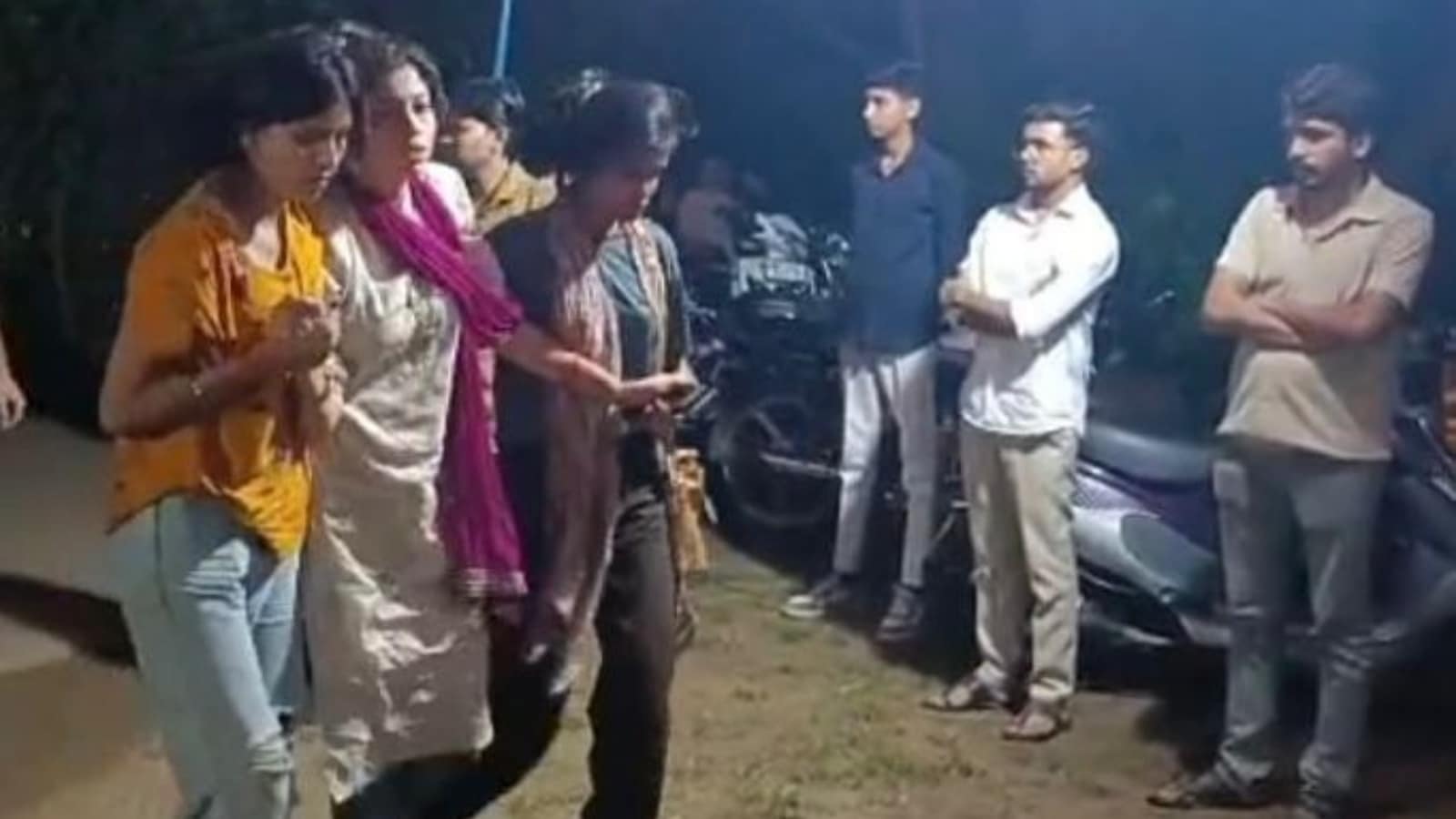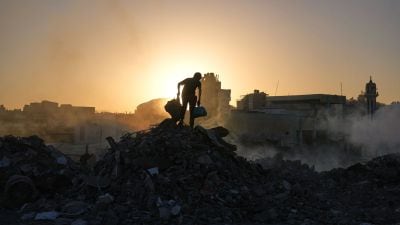In Madhya Pradesh town with 11 cough syrup deaths, a refrain: ‘No facility, had to go to Nagpur’
Between August and October, at least 11 children from Chhindwara district died, allegedly after consuming contaminated cough syrup.
 Officials seal Coldrif cough syrup bottles in Chhindwara, MP, on Sunday. (ANI)
Officials seal Coldrif cough syrup bottles in Chhindwara, MP, on Sunday. (ANI)Prakash Yaduvanshi stood outside Parasia police station, waiting to record a statement on his son’s death. He clutched a folder of documents, including receipts from six dialysis sessions and discharge summaries from three hospitals.
“He was my only son,” said Yaduvanshi, who is from Parasia in Madhya Pradesh’s Chhindwara district. “There was no proper treatment in government hospitals. I had no option but to go to private hospitals in Nagpur.”
The decision to move his son to Maharashtra’s Nagpur, located almost 150 km from Chhindwara, was an expensive one. He spent Rs 7 lakh for his son’s hospital admissions and dialysis treatments, raised by selling his wife’s jewellery and borrowing from locals. Eventually, he could no longer afford dialysis.
Between August and October, at least 11 children from Chhindwara district died, allegedly after consuming contaminated cough syrup. On Saturday, the Madhya Pradesh government ordered the immediate stoppage of sales and distribution of Coldrif Syrup, manufactured by Sresan Pharmaceutical, after a test report from the Government Analyst at the Drug Testing Laboratory in Chennai said its sample was “found to be adulterated, since it contains Diethylene Glycol (48.6% w/v) which is (a) poisonous substance which may render the contents injurious to health.”
No dialysis unit
Apart from the cough syrup contamination, the tragedy has laid bare the gaps in Chhindwara’s health infrastructure. The district, which has a newly inaugurated medical college, numerous hospitals and private clinics, doesn’t have a single dialysis unit. In the Parasia block, the civil hospital has a shortage of specialists and other staff.
Historically known for its coal mines and thriving markets, some of the largest in the district after Chhindwara town, Parasia is prosperous enough for several doctors to establish clinics here. Everything sits within 1-3 kilometres — clinics, pharmacies, the bus stand. The town serves as a connecting point for people from adjoining areas, such as Amarwara, Amla, Pipariya, Tamia, and Junnardeo. For minor ailments, Parasia’s clinics suffice. But when complications emerge, the town’s infrastructure is found lacking.
“Chhindwara district does not have a dialysis centre,” said Sub-Divisional Magistrate (SDM) Vikas Kumar Yadav, adding, “Historically, because of its coal mines, the population here has been relatively well-off. With purchasing power and proximity to Nagpur, patients usually prefer to go there immediately for treatment.”
 MP cough syrup deaths: Mother of Yojita, a toddler who died on Saturday.
MP cough syrup deaths: Mother of Yojita, a toddler who died on Saturday.
‘Lost precious time travelling’
When Majid Khan took his five-year-old grandson Adnan to Chhindwara District Hospital on August 28, relatives claimed there were no doctors present. At a private clinic, the local doctor diagnosed the kidney problems and told them what everyone eventually hears — there are better specialists in Nagpur.
From August 28 to September 6, Adnan was undergoing dialysis at a private hospital in Nagpur. The family spent Rs 4.5 lakh, borrowing money and selling jewellery. They then moved him to Nagpur Medical College, hoping for more affordable care. “We lost precious time travelling. My son would have been alive if we had better facilities in Madhya Pradesh,” Khan said.
Rishika, the five-year-old daughter of farmers, fell ill with a fever and cough on August 25. She was given cough syrup, after which she vomited all night. The next morning, her family again took her to the doctor, who gave her injections, after which her condition worsened. “She forgot who we were. We ran to Nagpur to treat her. A single dialysis session cost us Rs 60,000 at private clinics from September 2. On September 16, I ran out of money. I had to discharge my daughter; she died 10 minutes later in my arms as we hopelessly looked for an affordable dialysis unit,” her father, Suresh, said.
Yasin Khan’s son Ushaid, who would have turned four on October 10, fell ill on August 25. After local doctor Aman Siddiqui prescribed cough syrup and treatment failed, the boy stopped urinating. The family took him to Nagpur, where blood tests revealed kidney failure. After three days of dialysis at New Health City Hospital, Ushaid died during an MRI on September 15. “The treatment and travel cost us Rs 3.5 lakh. To raise it, I sold my auto, my wife’s sewing machine, utensils and jewellery,” Yasin said.
Four-year-old Vikas’s family, all labourers living in a two-room mud-brick home in 2.5 acres of marginal land, spent Rs 2.4 lakh on his treatment. After taking cough syrup around August 19, Vikas began vomiting. Referred from Parasia to Chhindwara to Nagpur, he was treated for two days before dying. His grandfather Bare Lal said, “Vikas was our hope. Now all hope is gone.”
Chanchlesh was seven years old when he fell sick on September 16, weeks after the first such cases emerged. His illness followed a similar pattern. His parents, Chainwati and Sifal, are daily wage labourers. The family spent Rs 4–5 lakh, selling all their jewellery, the only assets they possessed, in less than two weeks. “We did everything for our boy. His life began to leave his body as we travelled to hospitals in buses and trains,” Chainwati said.
Yojita’s family — her father is a private school teacher — spent Rs 12-15 lakh, borrowing money and breaking fixed deposits. She fell ill on September 7, was treated at Nagpur, taken back to Chhindwara, and then moved to Lata Mangeshkar Hospital in Nagpur, where she died on October 1. The family received Rs 1 lakh from a Mumbai NGO and Rs 60,000 from the government to help with the expenses. “She was hooked to a ventilator in Chhindwara. We were unhappy with the facilities and had to run to Nagpur again,” her grandfather, Lekhram Thakre, said.
High-level meet
Following the cough syrup-linked deaths, the Union Health Secretary has chaired a high-level meeting with states and Union Territories on the “quality and rational use of cough syrups”.
In the meeting, the importance of strict compliance with the Revised Schedule M (guidelines and regulations for good manufacturing practices in the pharmaceutical industry) by all drug manufacturers was also emphasised, as was the identification of non-compliant units and initiation of strict action against them.
States and UTs were urged to ensure “rational use” of cough syrups, particularly among children. They were also advised to ensure enhanced surveillance, timely reporting by all health facilities, wider dissemination of the community reporting tool of IDSP-IHIP, and strengthened inter-state coordination for early reporting and joint action.
The deaths in Madhya Pradesh coincide with at least four recent casualties in Rajasthan, where children died allegedly after consuming cough syrup. There, the state has banned the distribution of cough syrups containing Dextromethorphan. It has also banned the distribution of all 19 types of medicines supplied by Kaysons Pharma, the company at the centre of the controversy, until further notice.







